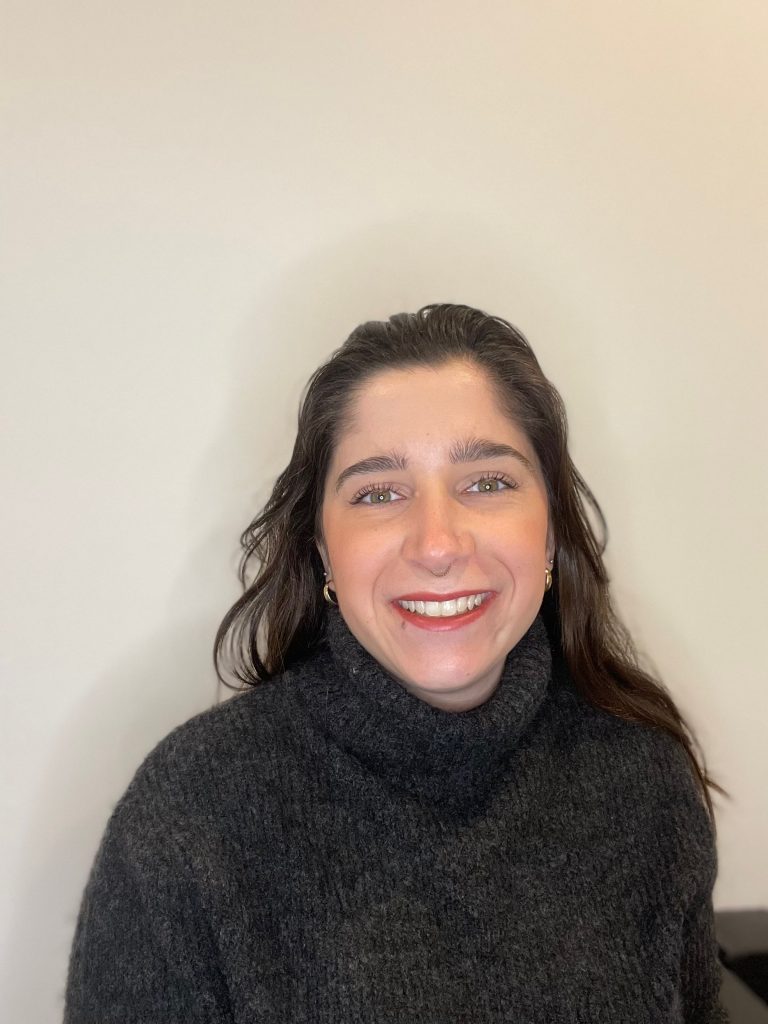Charlie Hook is a second-year Master of Information student at SIM. Charlie was recently accepted to a doctoral program at the University of Leicester. In this spotlight we learn about Charlie’s doctoral project and what she is most looking forward to as she continues her studies at a new university. Congratulations on this incredible accomplishment, Charlie. This is important and valuable work, and we wish you all the best as you embark on your degree.
Tell us about the program you applied to and why you were attracted to the University of Leicester?
I found out about this doctoral opportunity through Twitter! The University of Leicester’s School of Museum Studies was looking to award two fee waivers to students looking to pursue doctoral studies in their program in specific fields, one of which was human remains in the museum! I only had about six weeks left to apply when I found out!
I first became attracted to the subject of human remains in the museum while putting together an exhibit on women’s health in Victorian Leeds during my MA in Curating Science at the University of Leeds. During archival research, I became aware of a tumour that was removed from a female patient and then donated to the Leeds Medical School. When I inquired about it with my supervisor, he informed me that although there was a possibility that the school still had the tumour in their possession, it would be impossible to get access to it because of the laws that governed the care of human remains in the UK. I started designing my PhD project a few months later, but never finalised my application due to the start of Covid.
This specific opportunity is particularly special, partly because the fee waiver means that I do not have to worry about paying exorbitant international fees, but also because my supervisor is one of the few experts on human remains in the museum that is still teaching in the UK. Leicester also boasts the only dedicated museum studies school in England, so it is a natural fit for my studies.
What is your proposed doctoral project?
My proposed doctoral studies are on the provenance of colonial human remains in the museum. Currently, the Department of Culture, Media and Sport’s Guidance on the Care of Human Remains states that the provenance of human remains should not play an important role in determining the outcome of requests for the return of human remains to their community of origin; instead, the outcome should be decided based on a prove-able association between the remains and the community making the request, and the spiritual or cultural importance of the remains to the community. However, remains that were acquired by individuals and institutions during the period of British colonial expansion from overseas territories were usually acquired through theft, or trade where an imbalance of power was present between the giver and the recipient. My research will study the provenance of certain colonial human remains in British institutions through archival research, and hopefully, interviews with the community of origin in order to ascertain the means of acquisition of the remains. My hypothesis is that my findings will confirm that these remains were acquired through unethical or illegal means, which would diminish the institution’s claim over the remain, and therefore mandate or encourage the return of said remains to their community of origin.
What are you most excited for?
The first year of my degree is the literature review year, so I’ll be doing a lot of secondary research at first, before passing an examination that would confirm the feasibility of my research and officially make me a PhD candidate. The real fun will start in my second year, when I’ll be able to start archival research and interviews with communities. It will be very important for me to balance archival research, which represents a Western point of view, with the research I’ll be conducting with the communities of origin, which will likely include other Ways of Knowing. Creating relationships of trust with those communities will be difficult, but I’m looking forward to the challenge and the opportunity to help bring their voices to light, and hopefully bring their ancestors home.
How do you feel the MI prepared you to move into a research-intensive degree?
I benefited tremendously from some of the courses that I took with Dr. Jamila Ghaddar in the first year of my degree, where I was able to further explore my interests in human remains and the policies and legislations that relate to them. Dr. Ghaddar uses an intersectional approach to her teaching that really helped widen my horizons and teach me about all the parties with stakes in human remains present in the museum. The opportunity to pursue a reading course over the summer and fall turn also allowed me to dive into the subject, and perform much of the research that went into my proposal. Research Methods also proved invaluable in teaching me to write a research proposal in the first place, which was obviously key in putting one together in such a short period of time.


